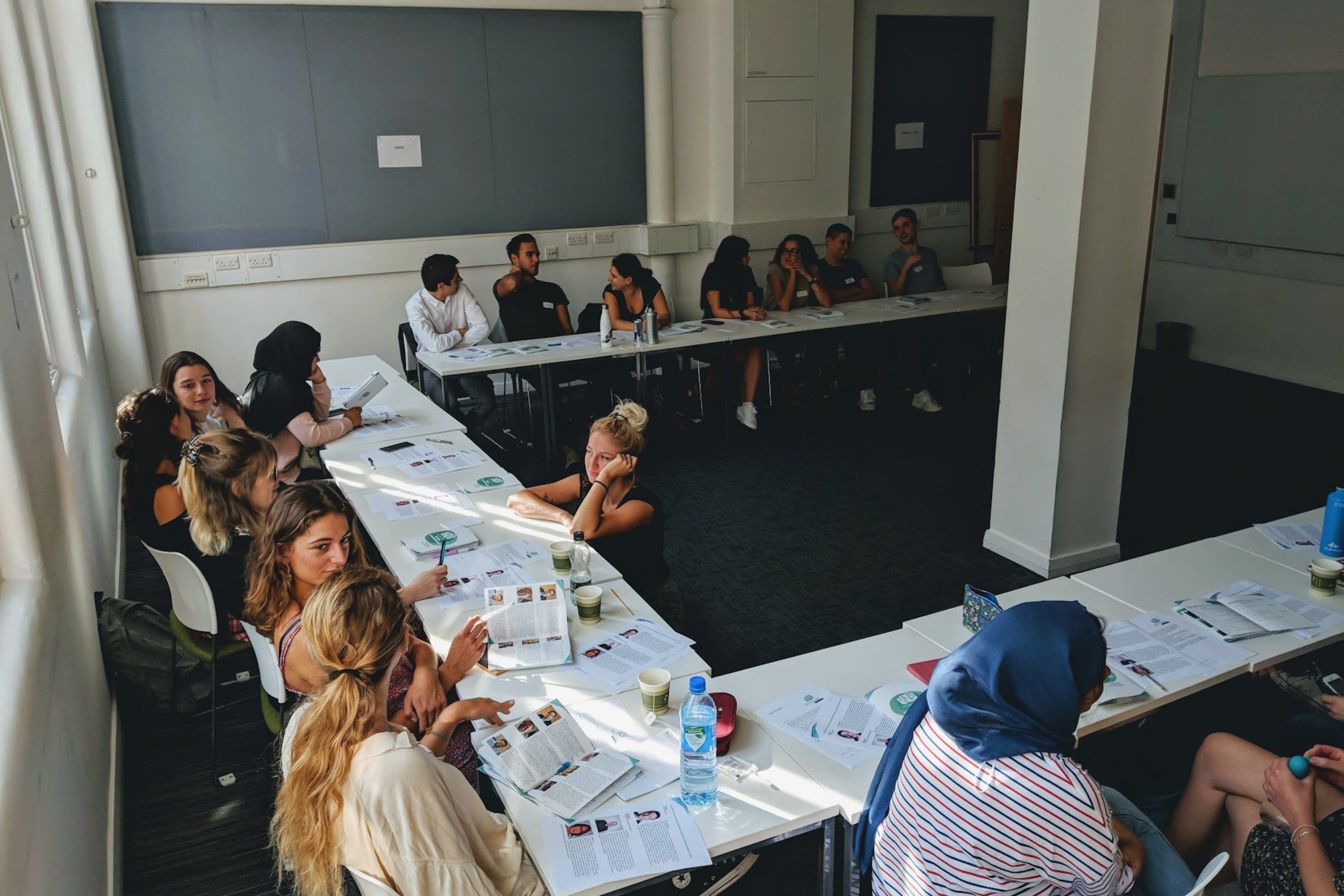
Dialogue on Israel-Palestine can be challenging, sensitive and requires empathy in order to remain solutions-focused, foster good relations and reduce tensions. Whilst having dialogue it is common for phrases and terms to cause an emotional discomfort or trigger. This is a short guide exploring some common triggers - it follows our posts on ‘Israel-Palestine: Avoiding Antisemitic and Islamophobic Hate Speech’ and ‘Israel-Palestine: Guide to creating safe and compassionate spaces for learning’.
1. What are trigger words and what’s the point here?
a. Trigger words are terms or phrases that can trigger a negative emotional response
b. They can be understood in different ways by different people
c. The point here is not to 'feel better', or draw a parallel, or avoid taking action. The goal is to explain and understand various positions, without excusing or justifying them
2. What are some examples in the Palestinian-Israeli context, and what are the critical-thinking questions we should be asking ourselves when we hear them?
a. Apartheid (often directed as an accusation towards Israel’s actions) and Terrorism (often directed as an accusation towards Palestine’s actions):
i. What was the original context of usage of the words?
ii. What are their current definitions in International Law?
iii. Are the terms being applied accurately based on the lived experience of people on the ground?
iv. If the terms are being applied in the Israeli-Palestinian context, are those in the international community applying them consistent in their critical approach to other countries and regimes, if not, why not?
v. If Israelis were not majority Jewish and Palestinians were not majority Muslim would there be any reason to avoid using these terms and does this help us consider whether doing so is antisemitic/Islamophobic, or not?
vi. Do you think using language like 'apartheid' or 'terrorism' helps or hinders efforts to solve the conflict?
b. “From the river to the sea” (Palestine will be free) and “Judea & Samaria” (Biblical or Greater Israel):
i. What do some Palestinians, some Israelis and their supporters mean when they use such phrases? (make sure to check in each individual case)
ii. What might Palestinians and Israelis and their supporters understand when they hear such phrases? (may be different for different people)
iii. We often hear the phrase “Free Palestine” from supporters of the Palestinians and “Save Israel” from supporters of the Israelis. What are the real, human needs and pain lying behind the call by the Palestinian and Israeli people for freedom, safety and self-determination?
iv. What will the likely result be of pursuing a position that claims all of the land for Palestine or all of the land for Israel?
3. Why is this important?
a. Because without dialogue and an understanding of where the other side is coming from, discussions about solutions will be more likely to break down
b. If solutions are not focused on and discussed, violence and hatred will continue and a lose-lose outcome is more likely
c. The people who pay the price of that are the millions of Palestinians and Israelis
d. The people who benefit most from that are some of those in power on both sides who are pushing for a win-lose outcome in order to divide the people and serve their own interests
e. In the end, real human values mean that Palestinians and Israelis must be free and safe and we should all be pursuing a win-win outcome based on justice and equality.
If you want any advice, contact us. If you're a teacher or school leader and want to know more about discussing this issue with your students, you can find out more here.
SOLUTIONS NOT SIDES